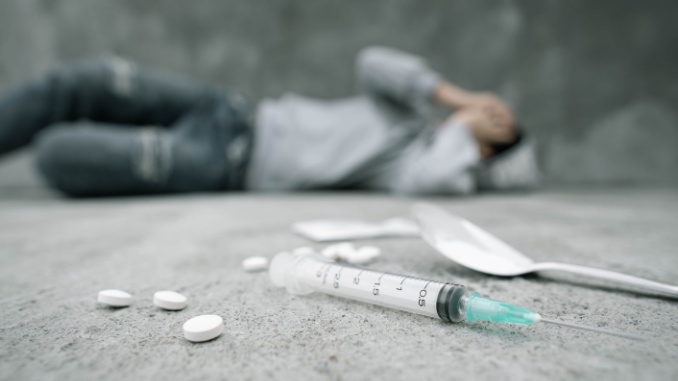By Staff Reporter |
Arizona may be the next state to adopt drug injection sites following Governor Katie Hobbs’ veto.
Safe injection sites, overdose prevention centers, safer drug consumption services, supervised injection services—all descriptors for locations or facilities where drug addicts can inject illegal drugs while medical personnel watch to ensure an overdose doesn’t occur. In the event of an overdose, personnel intervene to reverse it.
Arizona doesn’t have any drug injection sites—yet. It also doesn’t have a ban on them, and it won’t for the foreseeable future under this current administration.
Earlier this year, Governor Katie Hobbs vetoed HB2798, a bill that would have prohibited local governments from allowing the development of any drug injection sites. Hobbs indicated the injection sites were part of “common sense solutions” for drug addiction.
“These sites are nonexistent in Arizona,” said Hobbs. “I encourage the Legislature to seek common sense solutions to actually help Arizonans struggling with substance use disorder.”
Hobbs’ veto rationale wasn’t widely shared by others in her party. Other states banned drug injection sites before they came into existence. Pennsylvania, for example, passed a ban in 2023 with the support of Governor Josh Shapiro, also a Democrat. So did California.
State-supplied overdose reversal kits are widespread in the state already, even and especially in places where minors frequent. Arizona schools have received tens of thousands of overdose kits in recent years to address the growing trend of minors abusing drugs. Libraries across the Valley also received more than their fair share.
The lawmaker behind the rejected bill, Republican State Rep. Matt Gress, said Hobbs should be replaced for killing his legislation.
Gress paired his commentary with recent footage of an injection site from Canada in Vancouver, British Columbia.
“Arizona deserves a better governor,” said Gress.
Those who spoke out against the bill during committee hearings included the Southwest Recovery Alliance (SRA).
SRA’s executive director Arlene Mahoney opposed the bill language referring to drug injection sites as “narcotics injection sites” rather than “overdose prevention centers,” which advocates often prefer.
“I think the name ‘narcotics injection site’ incites a lot of fear into people and it doesn’t encompass what an overdose prevention center actually provides. It’s an integrative healthcare facility that offers, yes, a safe place for people to consume pre-obtained drugs inside a facility which they would be doing in parks and other places anyways,” said Mahoney.
Mahoney was a social worker and co-investigator on a federally funded study on methadone application at the University of Arizona’s Harm Reduction Research Lab from last year to August.
In 2023, the Biden administration issued a $5 million grant to study the effectiveness of overdose prevention across 1,000 participants at two safe injection sites in New York City and one in Providence, Rhode Island, over the course of four years.
The first injection site in the United States was authorized to launch by New York City in 2021.
Apart from New York and Rhode Island, few legally sanctioned drug injection sites exist because of concerns with federal drug laws.
The city council of Denver, Colorado, attempted to implement a drug injection site in 2018, but the Trump administration warned the site would be illegal.
However, after the Biden administration showed a friendliness to the concept, more drug injection centers are emerging.
In 2022, San Francisco launched a social services resource facility, the Tenderloin Center, that quickly devolved into a drug injection site. The transition to the latter caused the site’s closure after less than a year.
The Tenderloin Center racked up a serious bill: $22 million to service around 400 people daily for 11 months. That’s about $72,400 a day—just under $200 per person if, indeed, an average of 400 people used the center daily.
Last year, Vermont established operating guidelines for drug injection centers after its legislature authorized and funded a drug injection center in the city of Burlington. The city launched its drug injection pilot program earlier this year.
Minnesota has authorized state funding for drug injection centers, but hasn’t granted legal authorization for them.
AZ Free News is your #1 source for Arizona news and politics. You can send us news tips using this link.








